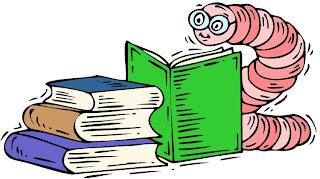Language lives on two planes—spoken and written. Written language bears little relationship to the way people speak. If I were saying what I have just written, I would say something like "We don't talk the way we write." (Come to think of it, that's better.)
When the two planes cross, sometimes the result is a blunder, perhaps not on the scale of the streams crossing in Ghostbusters, but embarrassing, nonetheless. It happens when, in conversation, you finally bring out a word that you may have read many times but have never heard anyone say. How many blushes I could have been spared if I had just looked up the pronunciation of a "book word" before allowing it to come out in public.
Many, many years ago, when I learned a little about economics, I could discuss some of the tenets of the Keynesian school of thought quite creditably. Unfortunately, I called it key-NEE-zhun. I had no idea that John Maynard Keynes pronounced his name "canes," and so was happily showing my ignorance every time I spoke about it.
A much more up-to-date example was a former co-worker, a film buff, who told me about a bye-AH-pic he had seen. I stared at him quite a while before I realized he was talking about a biopic. I have to admit that when first encountering that word in print, I had to think hard about what that might mean. And the co-worker who told me about a drink that involved "carraca" has, I'm afraid, changed forever how I think about curaçao (although, come to that, I hardly ever think about curaçao).
"Dour" is a word that sometimes tempts readers to pop it into a conversation (or sermon, as I heard it most recently mispronounced). Most Americans, it seems, decide, on no evidence whatever, that it must rhyme with "sour." But no, "dour" is probably of Scots derivation and properly rhymes with "tour."
The examples of bungled book words are plentiful—the financial advisor on TV who talked about a "harbinger of recovery," only he gave the harbinger a hard "g", the narrator of a crime documentary who talked of the criminals' cachet—he wasn't really admiring the ne'er-do-wells, what he meant was "cache" (pronounced "cash"), not cachet. I put "often" with the "t" pronounced in this category, as well.
I outwitted myself on a book word, as I recently discovered. In reading, I had always pronounced "trope" as "troh-pee," on the assumption that it was Greek in origin and all syllables would count, as in "calliope." So when I heard a TV talking head say "trohp," I laughed and shook my head. Until I consulted the dictionary, that is. It is from the Greek, through Latin, but the root word is "tropos." Our "trope" is just a shortening of the original and the talking head was right. Darn it.
Why had I never looked it up? And I thought John Maynard Keynes had taught me my lesson.

